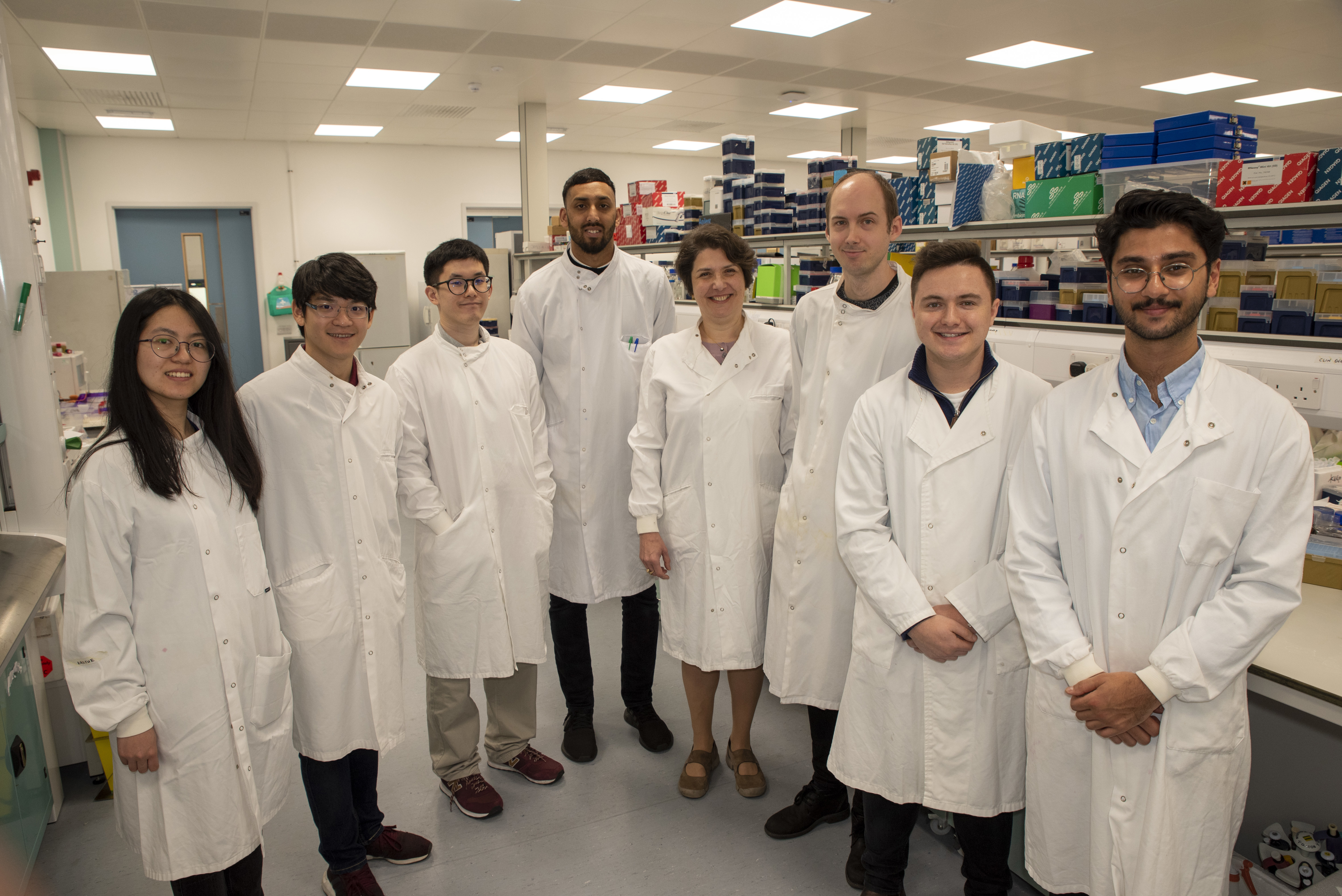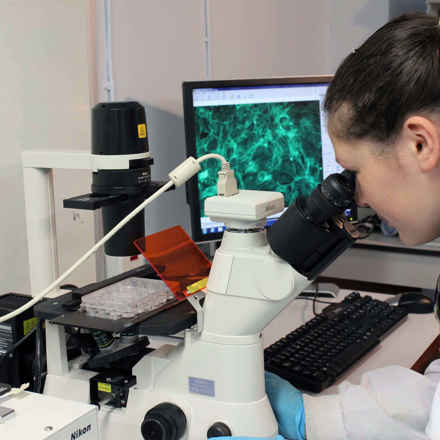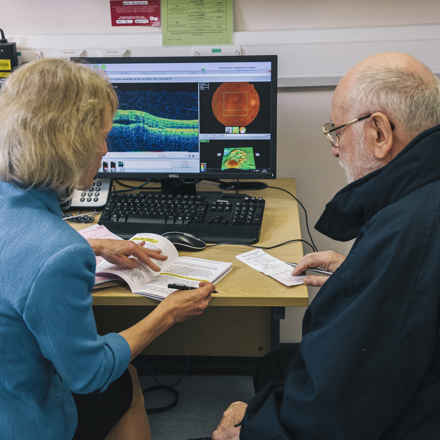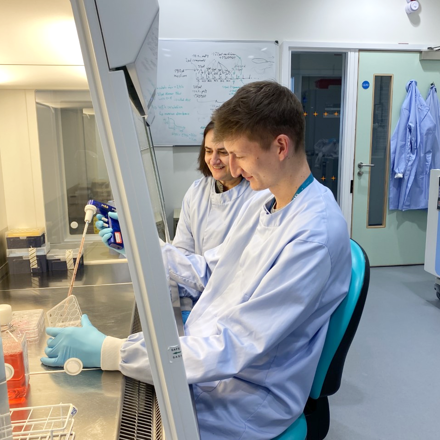
Our research projects
Since 1987 the Macular Society has invested around £10 million in over 100 research projects. Each year we invite applications for research grants, PhD studentships and seedcorn grants which are assessed by our Research Committee.
Research grants
Research grants are for projects of up to three years duration and up to £250,000, which covers everything from laboratory chemicals to salaries.
PhD studentships
A PhD studentship funds a student to undertake a three year research project. The student submits a thesis for qualification of the degree, which is the highest level of academic degree attainable.
Seedcorn projects
A seedcorn grant is funding of up to £25,000 to generate preliminary data to advance innovative and novel ideas.

Developing eye drops that can reach the back of the eye
Developing eye drops to reach the macula at the back of the eye. To treat macular diseases such as wet age-related macular disease.
Find out more

Finding a new test for early AMD
Using new technology to discover whether trouble adjusting to changes in light, is linked to early age-related macular disease (AMD) and why.
Find out more

Investigating how eye doctors discuss AMD with patients
Researching and giving guidelines on how ophthalmologists discuss lifestyle changes with dry age-related macular degeneration patients.
Find out more

Stopping the build-up of toxic waste in dry AMD
Research looking into the removal of toxic waste in cells of the retina that could lead to dry age-related macular degeneration (AMD).
Find out more

Wrong place, wrong time: protein delivery and macular disease
Investigating the movement of a protein called TIMP-3, which may be involved in AMD and Sorsby Fundus Dystrophy. To understand how the mutation leads to dysfunction and disease.
Find out more

Mutations in CFI gene: which are harmless or harmful?
Analysing mutations in the gene CFI which has been associated with AMD. This research aims to determine which may lead to AMD and which may not.
Find out more
